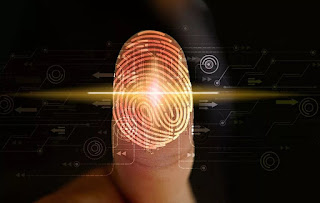Difference Between C216C and FBI (FD258) Fingerprinting Cards
Amidst the rise of digital fingerprinting technology, traditional ink and roll fingerprinting retain their vital significance across diverse sectors. This enduring technique remains pivotal in law enforcement, security, and background checks due to its tangible and dependable nature. C216C and FBI (FD258) fingerprinting cards differ in their distinct applications, uses, and recognition among various government agencies and organizations worldwide. These Ink and Roll Fingerprinting cards play pivotal roles in fulfilling specific needs for identification and verification purposes, highlighting the importance of understanding their variations, especially in the context of different nations’ regulatory frameworks and governing bodies. Let’s discuss the importance and the difference between the two.
Importance of Ink and Roll Fingerprinting:
Ink and Roll Fingerprint Cards:
C216C and FBI (FD258) physical cards retain clear and reliable fingerprint impressions, vital for verification purposes. Government agencies, employers, and organizations often require these cards for background checks and clearances.
Government and Licensing Requirements:
Certain professional licensing boards and government agencies mandate ink and roll fingerprinting as part of certification processes, particularly in sectors like healthcare, education, and law enforcement.
Immigration and Visa Applications:
Ink and roll fingerprints are essential for identity verification and criminal background checks in immigration or visa applications to specific countries.
Criminal History Record Checks:
Traditional fingerprinting is crucial for conducting criminal history record checks, particularly for employment in sensitive positions, security clearances, and firearm permits.
The Difference: C216C and FBI (FD258) Fingerprinting Cards
US Police Certificate (FD258):
It is the FBI’s standard fingerprint FD-258 for obtaining a US Police Certificate.
C216C:
It is the RCMP-certified C216-C for police clearances in nations outside the US.
It is accepted in various countries listed for RCMP clearances, aiding in identity verification and background checks.
Recognition and Country-Specific Requirements:
Countries Accepting C216C for RCMP:
Algeria, Anguilla, Antigua and Barbuda, Bahamas, Barbados, Brunei, Dubai, Ethiopia, Ghana, Grenada, Guyana, Hong Kong, Iran, Indonesia, Haiti, Jamaica, Kenya, Kuwait, Liberia, Mexico, Nigeria, Thailand, Tanzania, Trinidad and Tobago, Uganda, UAE, Qatar, South Africa, Sudan, Singapore, Zambia.
Countries Not Accepting C216C:
Australia, Bahrain, Egypt (Requires separate Embassy fingerprint card – Actual Ink and roll), Saudi Arabia, United Kingdom (No fingerprints needed for background check), Philippines (Requires separate Embassy fingerprint card – Actual Ink and roll), Jordan (No fingerprints needed for background check), Brazil (No fingerprints needed for background check), South Korea.
Note of Caution:
Recognized lists may evolve based on countries’ evolving criteria. Refer to the respective government websites for the latest updates on acceptance of C216C from Canada.
Comprehending the distinctions between C216C and FBI (FD258) fingerprinting cards aids applicants in navigating precise prerequisites for RCMP clearances globally and US Police Certificates. The distinct recognition of these cards across nations highlights their pivotal role in meeting rigorous global standards for identification and background verification. It’s crucial to consistently verify current country-specific demands before initiating the fingerprinting process, ensuring compliance with evolving regulations and guaranteeing a seamless and accurate procedure aligned with the respective country’s criteria for identification and background checks.
In order to know further, feel free to get in touch with us at +1 866 549 7779. SekCheck is what you need if you require a Security Check!
Source : Difference Between C216C and FBI (FD258) Fingerprinting Cards




Comments
Post a Comment